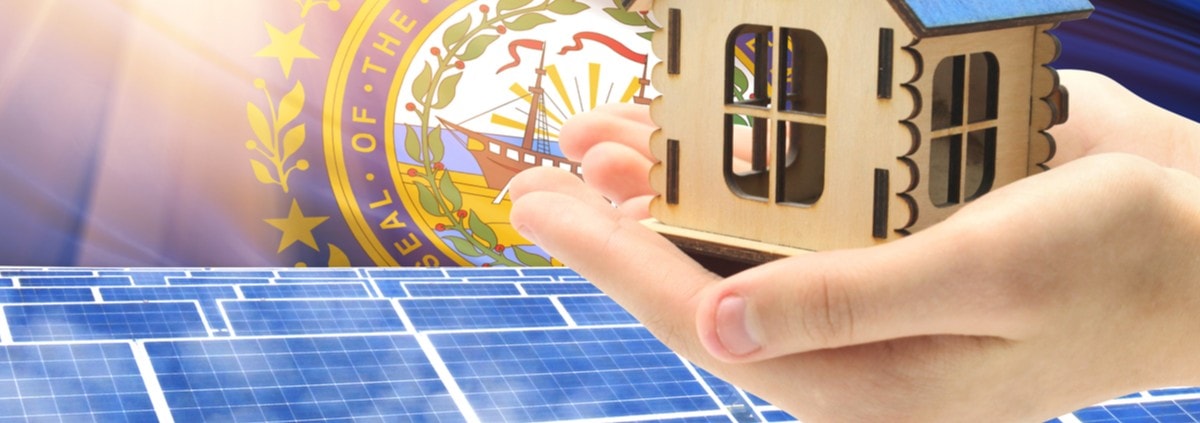Energy Deregulation in New Hampshire
Before 2001, the utility companies in New Hampshire supplied electricity, built the power lines and delivery systems, and then passed the costs for those along to consumers. However, once the state voted to deregulate the industry, power companies closed their plants and simply operated the power lines for consumers.
The open market has made the industry more competitive and dropped rates for many consumers. The fuel market in New Hampshire fluctuates, though, and with the fuel sources split about equally between renewables, nuclear, and fossil fuels, consumers have plenty of options.
New Hampshire energy deregulation was a popular initiative, but it took years before the state fully implemented it. It started in 1996 when the legislation ordered the New Hampshire Public Utilities Commission (PUC) to develop an electric choice program that could be put into effect by 1998.
It took a year for the PUC to complete a plan, and by 1998 Granite State Electric was the first to restructure and offer electric choices to consumers in the state. By 2003, the state fully introduced the retail option to residents, but over 70% of consumers still preferred to direct their power supply from utilities.
Electricity in NH – Present Day
Today, several retail suppliers all over the state still get their supply of power from the state’s top utility providers. Because of the competitive offers made by the retailers, more customers, both residential and commercial, now opt for their services. A different utility provider serves each part of the state, and consumers choose which supplier gives them their electricity needs.
Quick Facts about Energy in New Hampshire
- Renewable Sources. New Hampshire requires utilities to produce part of their electricity from renewable sources.
- No cap for greenhouse gas emissions. New Hampshire does not cap greenhouse gas emissions on its residents. However, the state does cap greenhouse gas emissions from power plants.
- Member of Regional Greenhouse Gas Initiative (RGGI). New Hampshire is part of an initiative that aims to lessen greenhouse gas emissions.
- About 1/3 of the state’s power comes from nuclear energy
- Natural gas from Maine and Canada. Because New Hampshire has no fossil fuel resources, the state gets most of its natural gas from pipelines that go all the way to Maine and Canada.
- Hydroelectric power source. New Hampshire uses hydroelectric power as a source of renewable energy, and they get this resource from the Connecticut and Merrimack River basins. This generates up to 8 percent of electricity in the state.
- Does not allow Decoupling. The state does not allow utilities to decouple their revenue. Decoupling allows utilities to increase their revenue while selling less energy to consumers.
Energy Providers in New Hampshire
Eversource Energy New Hampshire provides the power to residents and businesses from Berlin to Nashua County. Eversource provides electricity to other states and is best known for its quality service.
Address: 780 N Commercial St, Manchester, NH 03101
Contact: (800) 662-7764
NHEC, otherwise known as the New Hampshire Electric Co-op, is in charge of delivering power to 9 out of 10 counties in the state. They currently cover up to 115 towns and cities in New Hampshire.
Address: 579 Tenney Mountain Highway Plymouth, NH 03264
Contact: (800) 698-2007
Liberty Utilities. New Hampshire residents who reside in the southern and western parts of the state get their electricity and gas services from Liberty Utilities.
Address: 407 Miracle Mile Lebanon, NH 03766
Contact: (800) 375-7413
Unitil is known to provide gas and electricity to residents of New Hampshire residing in the south-central and southeastern parts of the state.
Address: 6 Liberty Lane West, Hampton, NH 03842-1720
Contact: (888) 301-7700
Map of US Energy Deregulation
New Hampshire is one of 26 US States that have some form of energy deregulation whether it be electricity, natural gas or both. Use our interactive map to get more information on deregulated energy states in America.

